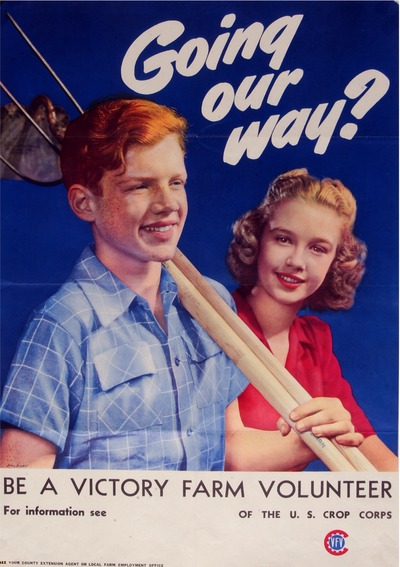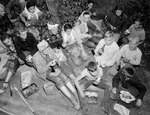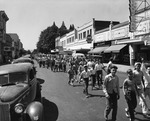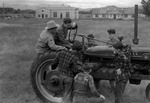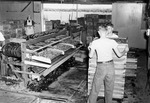View all images of Victory Farm Volunteers
Youth 11 to 17 years of age constituted one of the largest single groups in the Emergency Farm Labor Service work force. They were known as the Victory Farm Volunteers (VFV).
Youth committees, consisting of growers and youth organization leaders, were formed to plan the youth program in a county. To prepare for the summer's farm work, youth were provided some training in their public schools during the spring. Additional training was provided in the early summer after they were organized into platoons of twenty to fifty youth. Each platoon was placed under the supervision of an adult, often a member of the Women's Land Army. Parental consent and a physical fitness check were required of all youth placed by the Emergency Farm Labor Service.
Farmers would work with their county extension office's emergency farm labor assistant to get the necessary workers required. Youth also worked on a day-haul basis, and were normally limited to a six-hour work day. Occasionally, schools would close during harvest periods so that the youth could help with harvesting.
During the program's four and a half years, over 270,000 youth placements were made on Oregon's farms and in its food processing facilities. Farm work had an added benefit -- the Extension Service's 1943 annual report stated that "the Victory Farm Volunteers' movement has been pointed to by juvenile officers as having a very direct and beneficial effect upon juvenile delinquency problems."

